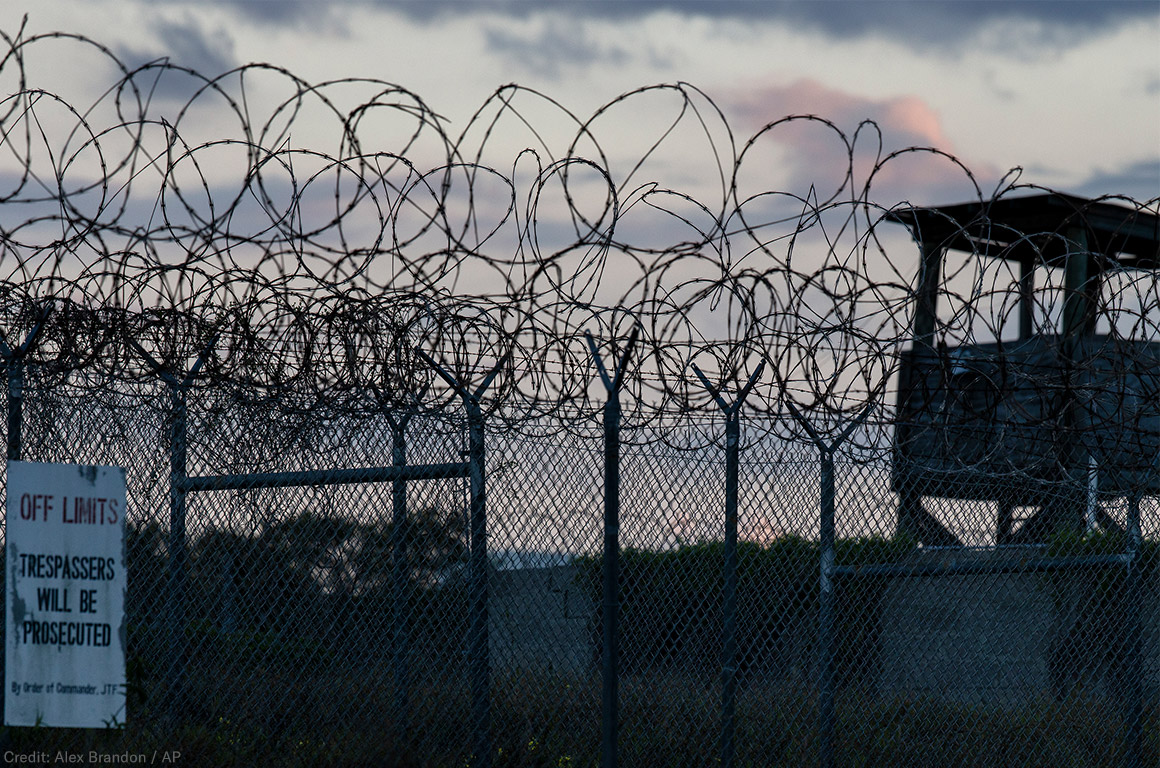
Connell v. CIA ã FOIA Lawsuit Seeking Records About CIA ãOperational Controlã Over a Detention Facility at GuantûÀnamo Bay
Certiorati Briefing
A petition for a writ of certiorari is a brief that asks the Supreme Court to review a lower courtãs ruling, either from a federal appellate court or a stateãs court of last resort. A Brief in Opposition urges the Court not to review the case, and is filed by the party that prevailed in the lower court.
What's at Stake
The CIA has refused to disclose whether it has records about its operational control over Camp VII, a detention facility at GuantûÀnamo Bay. Given the extensive public record about the CIAãs connection to Camp VII, its refusal to acknowledge that it has responsive records both violates the law and defies common sense. At stake is whether the court will reject the CIAãs version of official secrecy and call out its fiction of deniability or whether it will allow that fiction to stand.
Summary
After 9/11, the President authorized the CIA ãã persons outside the United States. So began the CIAãs rendition, detention, and interrogation program, wherein dozens of Muslim men and boys were abducted, tortured, held incommunicado, and denied legal process. In September 2006, the CIA transferred fourteen of the men in its program to a facility at GuantûÀnamo Bay known as Camp VII. Although Camp VII was located on a U.S. naval base, according to the Senate Select Committee on Intelligenceãs , the facility ãremained under the of the CIA.ã
James G. Connell, III, is an attorney who represents Ammar al Baluchi, one of the fourteen men subjected to the CIA torture program and sent to Camp VII. To better represent his client before a military commission at GuantûÀnamo Bay, Mr. Connell filed a FOIA request with the CIA seeking information about the agencyãs ãoperational controlã over Camp VII after his clientãs arrival there. The CIA ultimately produced three records, withheld a fourth document in its entirety, and refused to confirm or deny whether any other responsive records exist.
That refusal to acknowledge whether records exist ã known as a Glomar response ã undercuts the FOIA process before it even begins. Mr. Connell filed a lawsuit challenging the CIAãs assertion of a Glomar response. The district court ruled in favor of the CIA. The äØæÆòÆóçrepresents Mr. Connell on appeal.
The CIAãs assertion of Glomar is unlawful. To be upheld, the CIA must demonstrate that it is logical or plausible that it has no responsive records in light of the entire record. But reams of record evidence leave no doubt that the CIA maintained some measure of operational control over detainees at Camp VII during the relevant time period. The Senate , which was released with the Presidentãs blessing after an executive branch declassification review following direct input and responses from the CIA, conclusively undermines the agencyãs Glomar response. Other declassified in the also address the measure of the CIAãs power and authority over Camp VII. And and from the GuantûÀnamo military commissions proceedings further undermine any CIA claim to secrecy over whether records responsive to Mr. Connellãs request, in fact, exist. Moreover, through some of those same documents, the CIA waived its ability to assert a Glomar response through official acknowledgment.
Legal Documents
-
11/04/2024
Petition for Writ of Certiorari
Date Filed: 11/04/2024
Court: Supreme Court (U.S.)
-
08/06/2024
Opinion -
02/09/2024
Reply Brief -
01/12/2024
CIA's Opposition Brief -
10/12/2023
Joint Appendix -
10/12/2023
Opening Brief
Date Filed: 08/06/2024
Court: Appeals Court (D.C. Cir.)
Date Filed: 02/09/2024
Court: Appeals Court (D.C. Cir.)
Date Filed: 01/12/2024
Court: Appeals Court (D.C. Cir.)
Date Filed: 10/12/2023
Court: Appeals Court (D.C. Cir.)
Date Filed: 10/12/2023
Court: Appeals Court (D.C. Cir.)
-
03/29/2023
Summary Judgment Decision -
03/08/2021
Complaint
Date Filed: 03/29/2023
Court: District Court (D.D.C.)
Date Filed: 03/08/2021
Court: District Court (D.D.C.)
-
07/15/2021
Memorandum of Agreement Between DOD and CIA (9/1/2006) -
07/15/2021
Expanded Itinerary and Background Memo for CIA Director Visit to GuantûÀnamo Bay (12/21/2006) -
09/29/2020
Itinerary and Background Memo for CIA Director Visit to GuantûÀnamo Bay (12/21/2006)
Date Filed: 07/15/2021
Court: FOIA Documents
Date Filed: 07/15/2021
Court: FOIA Documents
Date Filed: 09/29/2020
Court: FOIA Documents
-
07/15/2021
CIA Final FOIA Response -
12/17/2020
Connell Administrative Appeal -
09/29/2020
CIA FOIA Response -
03/08/2018
Connell Clarification -
02/08/2018
CIA Clarification Request -
05/23/2017
CIA FOIA Request
Date Filed: 07/15/2021
Court: FOIA Request
Date Filed: 12/17/2020
Court: FOIA Request
Date Filed: 09/29/2020
Court: FOIA Request
Date Filed: 03/08/2018
Court: FOIA Request
Date Filed: 02/08/2018
Court: FOIA Request
Date Filed: 05/23/2017
Court: FOIA Request
Press Releases
äØæÆòÆóçAsks Supreme Court to Hear GuantûÀnamo Attorneyãs Lawsuit Challenging CIAãs Excessive Secrecy
Appeals Court Allows CIA to Continue Abusing Glomar Responses to Evade Accountability
Federal Court Argument on CIAãs Refusal to Confirm or Deny Records About Agencyãs ãOperational Controlã Over Camp VII at GuantûÀnamo
